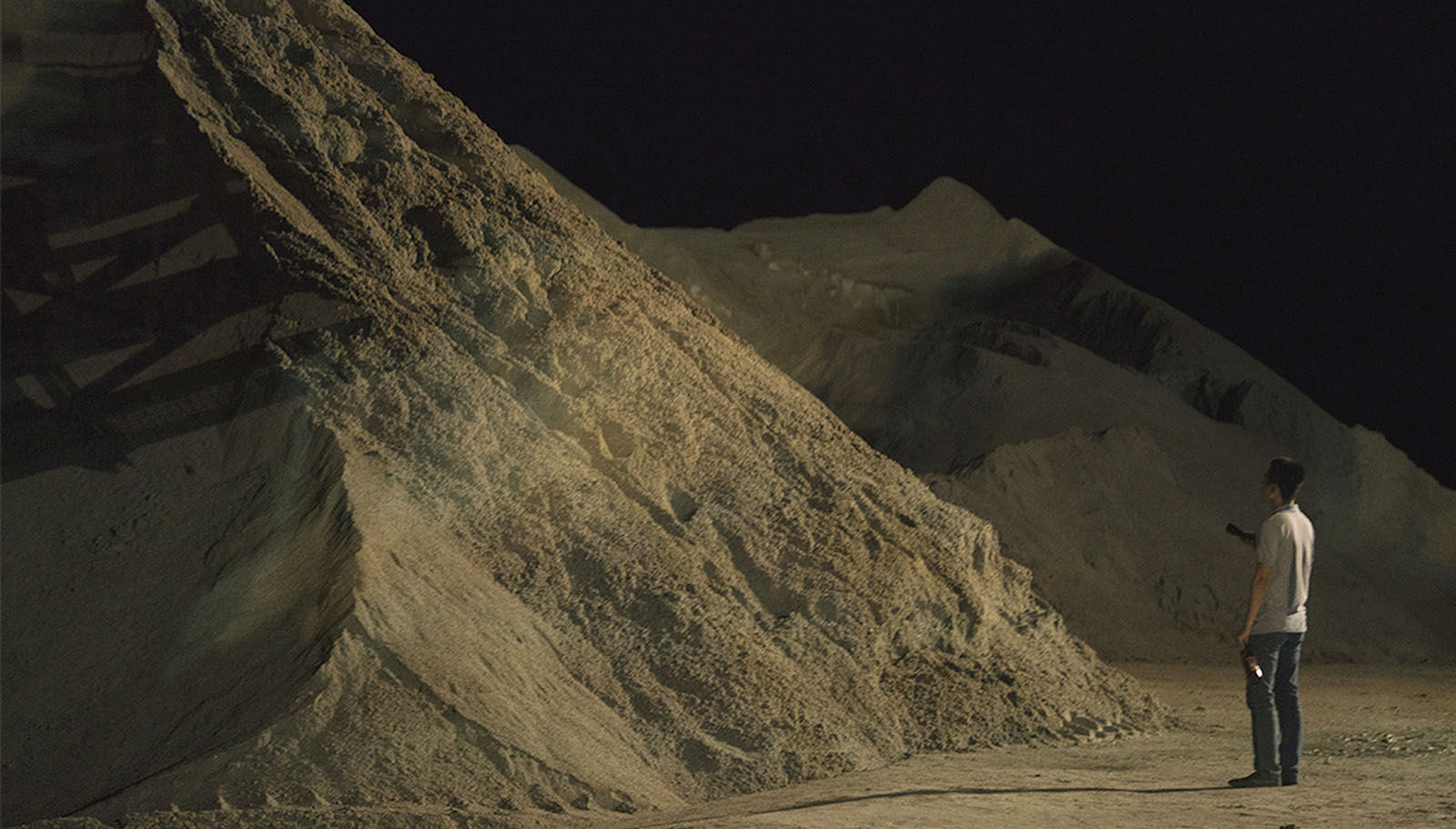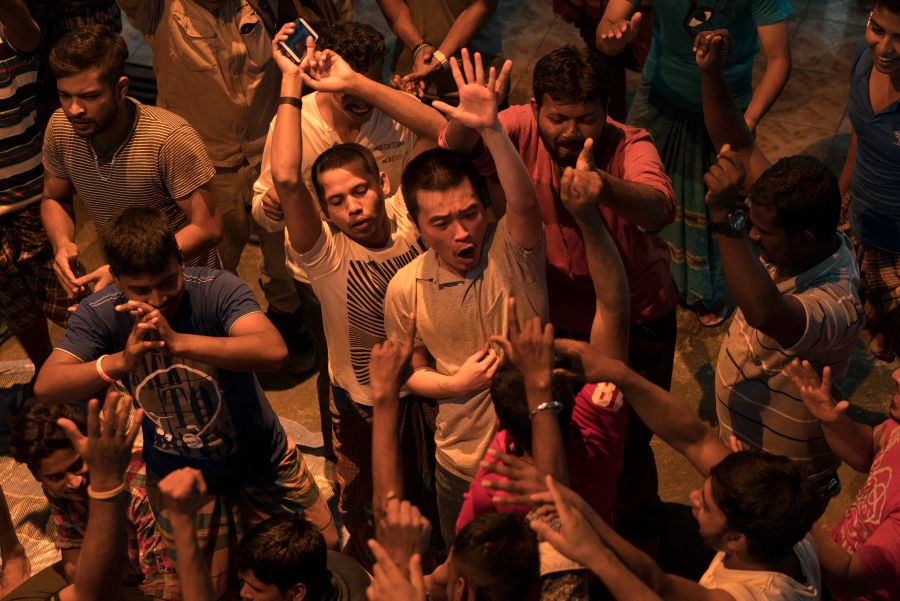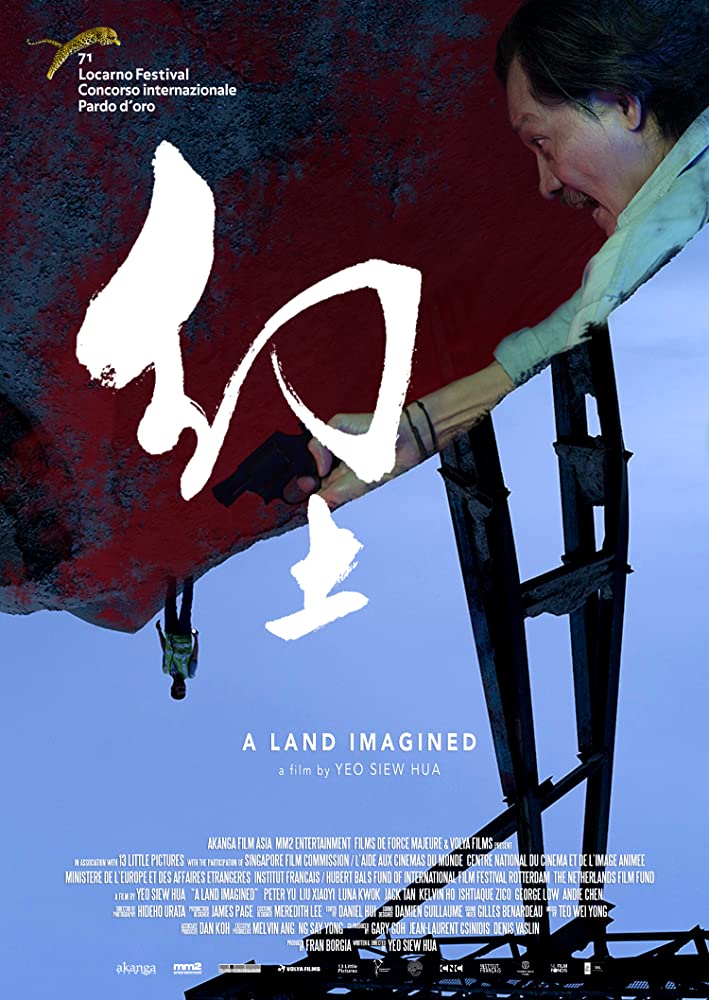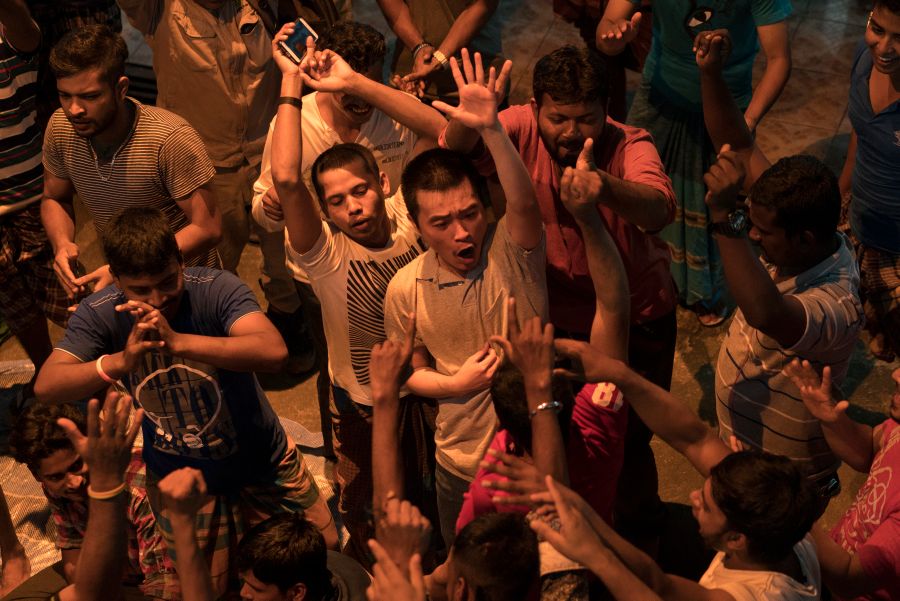A Land Imagined is an award-winning local co-production with France and Netherlands, directed and written by Singaporean Yeo Siew Hua. Achieving the top prize, the Golden Leopard, at the 71st Locarno Film Festival, the artistic film follows the story of a police investigator and a migrant worker who is employed for land reclamation projects. A melancholic slice of life, the haunting film provides a realistic perspective on migrant workers’ lives with the ingenious use of temporal realism.
The film begins by showing a Chinese construction worker, seemingly maniacal, as he sits high up on a metal structure. His pensive gaze at the open skies and the absence of protective gears point to suicidal thoughts. Then, the scene opens to the centric characters, a jaded police investigator, Detective Lok (Peter Yu) and his search for a missing Chinese migrant worker, Wang Bi Cheng (Liu Xiao Yi).
Next, the poor living conditions and lack of welfare of the migrant workers are depicted. Lok’s search has brought him to the first station, the office of Wang’s employer. “There are too many of them, how do we keep track?” The employer easily dismisses Lok’s investigation, indicating the lack of concern about the life or death of his workers. Followed by showing Wang’s dormitory in an overcrowded dilapidated housing, the filthy conditions under which bed bugs seem to be a norm, there is no quality of life for them.
Lok’s only lead, Ajit (Ishtiaque Zico) who is Wang’s only close friend, is missing as well. Lok is surprised, he realises that nobody has noticed, or more aptly put, cared about these migrant workers’ disappearances despite the tedious work they had done for the country. In a flashback, the film now follows the steps of Wang’s journey as a high-risk construction worker. Wang’s arm was injured during an accident thus impeding his ability to work, leading to a further fall into depression.
“You should be thankful.” One of Wang’s co-workers said as Wang was assigned to be a shuttle driver instead of being deported. Perhaps a silver lining, an unlikely friendship was formed between Ajit and Wang during his newly assigned task. Despite their communication gap and racial diversity, Ajit had welcomed Wang warmly to their festivities, forming a common identity in this foreign land.
However, Wang was frustrated at the circumstances, his pay was cut and he had much difficulties adjusting to life with only one arm. Finding solace in a nearby e-cafe, Wang met Mindy (Luna Kwok), a fellow Chinese migrant who worked as the shop assistant. Forming an emotional connection, the two became fast friends. They spoke of their escape, of where there would be no borders and no visas, to find true freedom. Accentuating their loss of dreams and memories of home, this scene has regrettably illustrated the difficult lives these migrant workers face.
The next scene turns to Ajit’s concern for his ill mother back in Bangladesh. He was unable to return home as he did not have the money and his passport was safeguarded by their employer. When Ajit did not turn up for work one day, Wang started a desperate search. Finally, a horrified Wang found a co-worker’s body buried in the sand. The identity is not explained, and it is not clarified if it was a manslaughter or an accident, rendering this scene confusing and jarringly haunting.

“I heard death in dreams signify new beginnings.”
The theme of escape and death is consistently used in different motifs. The blurry landscape of a computer game signified the pain and emptiness Wang had felt regarding his plight. The endless run in a sand dune that mimicked his real-life workplace before Wang’s imminent in-game death perhaps points to his actual situation in the present.
As the film reaches its climax, viewers return to the present as the police investigator. It is shown that Ajit is actually alive and well, explaining to Lok that he has enjoyed working here and he is getting paid more than his counterparts in other Asean countries. However, Ajit may not be entirely truthful as his employer is watching him carefully.

The last scene pans towards Lok finding migrant workers dancing and singing together around a bonfire. It is a bacchanalian celebration, a shared joy and salvation found in the hardships of life. Lok joins them too, and the camera focuses on the policeman’s pensive expression as he seems to have found something.
The open ending of A Land Imagined leaves much to think upon, it is unclear as to whether Wang is located or not. The cinematography is aptly dark as the film reveals the poignant lives of the migrant workers. The time shifts and change of perspectives might be a little disorientating as Yeo focuses on the noir style rather than plot coherency. Artistic shots are scattered throughout the dreamy landscapes and yet the story is filled with holes never fully explained.
Overall, A Land Imagined is a thought-provoking film that provides an understanding of migrant workers. Allowing viewers to enter their lives temporarily, the film has succinctly showcased their dreams, fears, and joy, providing us an insight of these brave men and women who have left their countries in search of a better life.





























